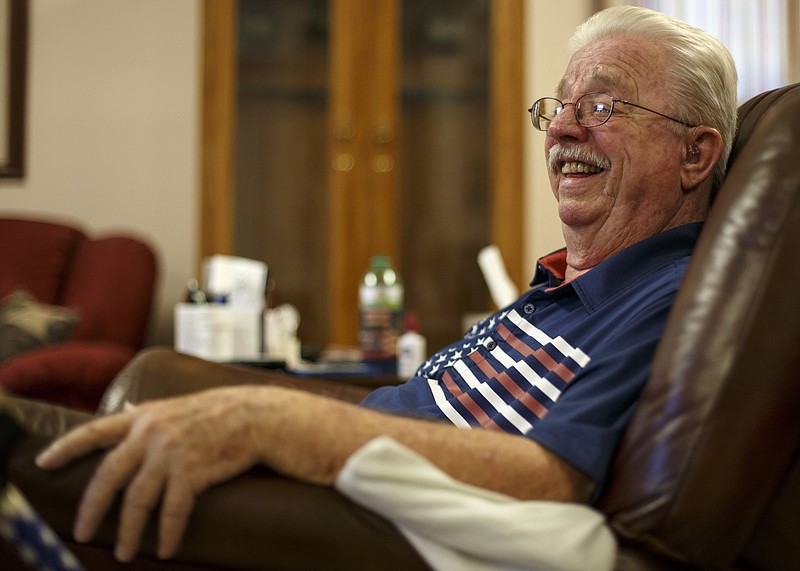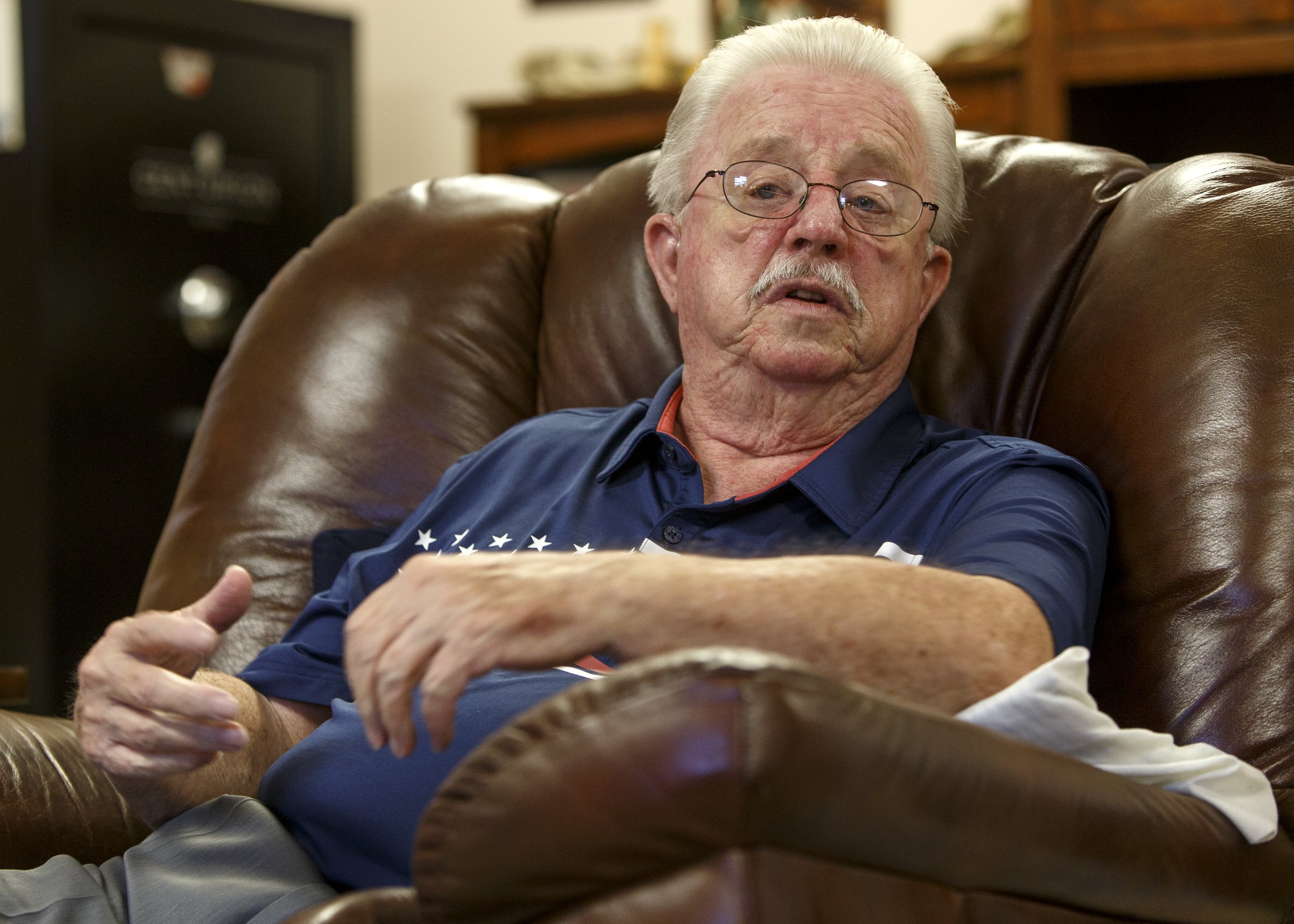BIO
Name: Jim ShullAge: 72Branch of military: NavyYears of service: Served from January 1966 to October 1969 in Vietnam; and December 1991 to May 1992 in Operation Desert Storm. Counting all of his time in the Naval Reserve, he retired in July 1992 with 26 years of service.
 View our 21 Veteran Salute page
View our 21 Veteran Salute pageJim Shull has been honored in several ways for his 26 years of service as a navy medic in Vietnam and Operation Desert Storm. He's been named Legionnaire of the Year in Tennessee, received the Charles Coolidge Veteran of the Year award.
But some of the 72-year-old petty officer first class' proudest moments came in the later years he spent honoring dying, sometimes bitter, veterans in hospice care who'd never received a simple "thank you" from their government.
"I did the basics," Shull said from his home garage in Hixson. "First, present them with a lapel pin with their branch of service. If their wife was present, sometimes I would hand it to her. I would provide them with a blanket to give them some hope, some comfort. Then I would step back and say, 'On behalf of the United States and our grateful nation, it's my honor to salute you."
Shull, or "Doc" as he's often been called, can't perform that service anymore because of his own health problems. But just talking about it eases the trauma Shull buried deep within himself over the years.
In 1965, weeks before Christmas, the University of Chattanooga student received a draft notice from the U.S. Army for Vietnam. Wanting to at least spend the holiday with his family, Shull signed up for the Navy instead and became a medic deployed alongside Marines.
Shull learned to slice rubber into breathing tubes for emergency tracheotomies in live combat. When men had limbs blown off, he would trim hanging muscle and seal off the skin. Flying in with injured soldiers, Shull relayed who would die, and who would not.
"Making life and death decisions? They taught us how to do that," he said. "But they didn't teach us how to live with it afterward."
Shull had nightmares, cold sweats. If he woke, he grabbed defensively at the disturbance, which was often his wife of more than 50 years, Sue. To this day, Shull says, he will not go to a restaurant and eat with his back to a wall.
None of this stopped him from returning to battle. After Vietnam, when he flew home to Sue Shull and at the time, a 9-month-old child, Shull joined Chattanooga's Naval Reserve in 1970. When Operation Desert Storm reared its head in 1990, Shull volunteered for battle, knowing he couldn't stay home if just one of his friends had agreed to put their life at risk.
What compels a man, now retired with three grown children and grandchildren, to risk his security, to revisit the blood and the guts and the heartache?
Perhaps stories like this:
One night in Vietnam, a young Marine walked into Shull's workspace, insisting he needed to see a doctor. At first, Shull couldn't get a straight answer from the man, who he would learn later was 17.
Finally, the Marine pulled a box of matches out of his pocket.
Inside?
An ear that he'd been carrying around for six months.
"He said, 'Doc, it's driving me crazy,'" Shull recalled. "He told me that in boot camp, his drill instructor told the whole platoon that to be a Marine, you're supposed to cut off the ear of the first Vietnamese person you killed."
Shull told the young marine to follow him outside where they kept a 55-gallon drum used to burn away syringes and bandages. Shull stirred the ash until it started to flame and turned to the young man.
"I said, 'The man you killed is halfway between Earth and Heaven. He's in purgatory. And he can't go any further until his body is whole. I want you to take this, and throw it in the fire. And as it burns and the smoke goes up, it's going to carry that ear up and reattach it to his body and he can go in to Heaven."
The young Marine wasn't sure it would work. But he reached over, he dropped the ear into the flames. And for a while after that, the men stood there and hugged each other and cried.
Contact staff writer Zack Peterson at zpeterson@timesfreepress.com or 423-757-6347. Follow him on Twitter @zackpeterson918.

